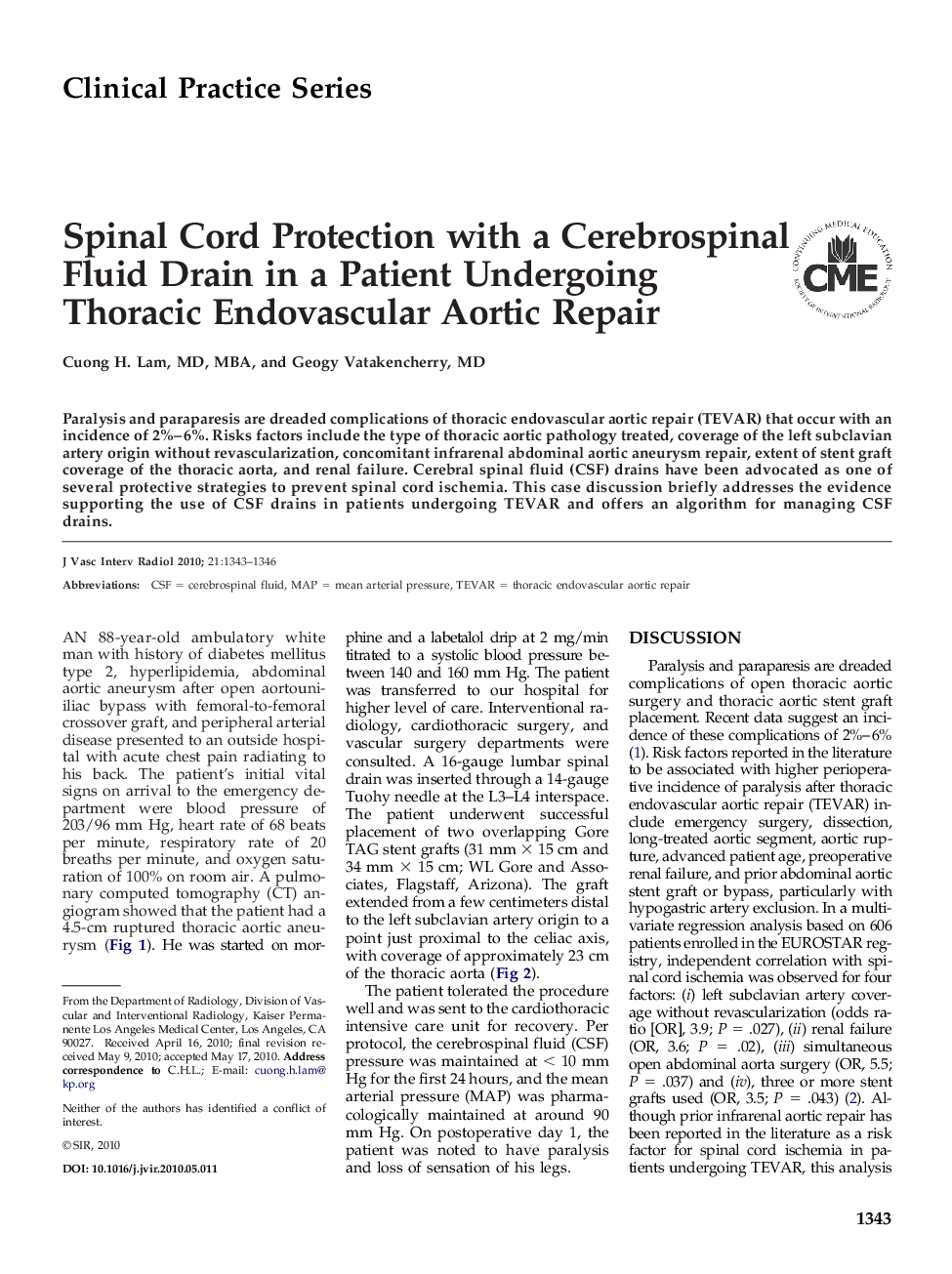| Article ID | Journal | Published Year | Pages | File Type |
|---|---|---|---|---|
| 4241032 | Journal of Vascular and Interventional Radiology | 2010 | 4 Pages |
Abstract
Paralysis and paraparesis are dreaded complications of thoracic endovascular aortic repair (TEVAR) that occur with an incidence of 2%-6%. Risks factors include the type of thoracic aortic pathology treated, coverage of the left subclavian artery origin without revascularization, concomitant infrarenal abdominal aortic aneurysm repair, extent of stent graft coverage of the thoracic aorta, and renal failure. Cerebral spinal fluid (CSF) drains have been advocated as one of several protective strategies to prevent spinal cord ischemia. This case discussion briefly addresses the evidence supporting the use of CSF drains in patients undergoing TEVAR and offers an algorithm for managing CSF drains.
Related Topics
Health Sciences
Medicine and Dentistry
Radiology and Imaging
Authors
Cuong H. MD, MBA, Geogy MD,
